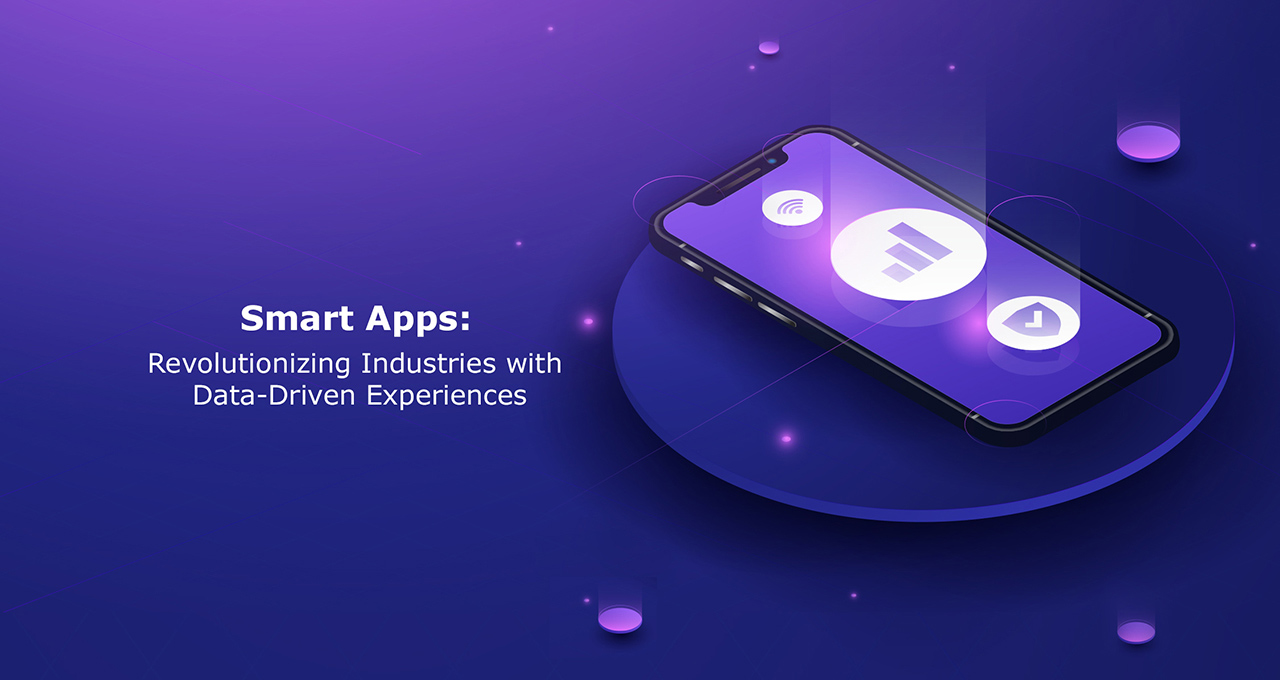
Image Credit: Image by pikisuperstar on Freepik
Welcome to the world of data-driven experiences! The evolution of technology has given rise to innovative smart apps that have revolutionized industries. Data-driven experiences have taken the center stage as businesses are leveraging this powerful tool that promises to enhance efficiency and productivity.
Data-driven experiences are applications that use data to improve and personalize customer experiences. These apps are designed to collect data and provide insights that businesses can use to make informed decisions. They use advanced analytics and algorithms to sift through vast amounts of data and provide meaningful insights that drive business growth.
So why are data-driven experiences important for businesses? In this ever-changing landscape, businesses must be customer-centric as customer expectations continue to shift. Data-driven experiences provide an opportunity to create personalized experiences that cater to individual customer needs. This, in turn, increases customer loyalty, customer retention, and drives business growth.
In this article, we will explore the concept of Smart Apps and how they are transforming various industries. We will delve into the characteristics of Smart Apps, their benefits for businesses, and real-world use cases that demonstrate their effectiveness. So, let’s dive in and discover the revolution that Smart Apps are bringing to the world of application development.
What are Smart Apps?
Smart Apps, also known as Smart Process Applications, are a new breed of software that leverages data in a dynamic way to gather insights and enhance user experiences. Unlike traditional applications, Smart Apps are data-driven and utilize machine learning algorithms and predictive analytics to make data-supported recommendations and predictions. These apps gather extensive amounts of data from sensors and other sources, enabling them to provide personalized, context-aware, and proactive interactions with users.
One of the defining characteristics of Smart Apps is their intelligence. By leveraging analytics, machine learning, and AI services, these apps can make recommendations and predictions that guide users and things to take the next best action. They can analyze vast amounts of data in real-time and provide valuable insights that help users make informed decisions.
Another key aspect of Smart Apps is their contextual nature. They utilize personal, sensor, and location data to personalize the user experience and embed themselves seamlessly into users’ processes. Whether it’s through a mobile device, a wearable, or any other channel, Smart Apps adapt to the user’s context and provide relevant information and recommendations.
Smart Apps are also proactive in their approach. Instead of waiting for users to initiate interactions, these apps come to the user. They leverage push notifications, chatbots, and messaging services to proactively engage with users and provide them with smart recommendations of what to do and when. This proactive nature enhances user engagement and ensures that users are always up-to-date with the latest information and insights.
Benefits of Smart Apps for Businesses
The adoption of Smart Apps offers numerous benefits for businesses across various industries. Let’s explore some of these benefits:
Automating Workflows for Improved Efficiency and Productivity
One of the key advantages of smart apps is their ability to automate workflows, reducing manual effort and improving overall efficiency. Workflow automation tools allow businesses to automate repetitive tasks, such as data entry, report generation, and email notifications. By eliminating these manual tasks, businesses can free up valuable time and resources, which can be redirected towards more strategic activities.
Workflow automation also minimizes the risk of human error, ensuring that tasks are executed accurately and consistently. Businesses can create customized workflows that align with their specific processes, enabling seamless automation across departments. By embracing workflow automation through smart apps, businesses can significantly improve efficiency, reduce costs, and enhance productivity.
Managing Customer Relationships with CRM Software
Customer relationship management (CRM) is crucial for businesses to build and maintain strong customer relationships. Smart apps offer CRM software that enables businesses to effectively manage customer interactions, track sales activities, and analyze customer data. CRM software provides a centralized database where businesses can store customer information, track communication history, and manage sales pipelines.
By utilizing CRM software, businesses can personalize customer interactions, improve customer satisfaction, and drive customer loyalty. These apps offer features such as contact management, lead tracking, sales forecasting, and customer segmentation. By leveraging CRM software, businesses can enhance their customer relationship management processes, boost sales, and achieve long-term success.
Utilizing Analytics and Reporting Tools for Data-Driven Decision Making
Data is a valuable asset for businesses, and smart apps provide powerful analytics and reporting tools to harness the power of data-driven decision making. These tools enable businesses to collect, analyze, and visualize data in real-time, empowering decision-makers with valuable insights. With the help of analytics and reporting tools, businesses can monitor key performance indicators, identify trends, and make informed decisions based on accurate and up-to-date information.
Data visualization software is an integral part of analytics and reporting tools, as it transforms complex data into visually appealing charts, graphs, and dashboards. This visual representation of data facilitates easier interpretation and understanding, enabling decision-makers to identify patterns and trends quickly. By leveraging analytics and reporting tools, businesses can make data-driven decisions, optimize their operations, and drive growth.
Exploring AI-Powered Business Automation Tools and Applications
Artificial intelligence (AI) and machine learning have emerged as powerful technologies that can transform businesses. Smart apps offer AI-powered business automation tools and machine learning applications that enable businesses to automate complex processes, analyze large datasets, and gain valuable insights. These technologies have the potential to revolutionize various aspects of business operations.
AI-powered business automation tools automate repetitive tasks, such as data entry, customer support, and inventory management, freeing up human resources for more strategic activities. Machine learning applications can analyze large amounts of data, identify patterns, and make predictions, enabling businesses to optimize their marketing strategies, improve forecasting accuracy, and enhance decision-making processes.
By exploring AI-powered business automation tools and machine learning applications, businesses can unlock new levels of efficiency, innovation, and growth. These technologies have the potential to reshape industries and provide businesses with a competitive edge in the digital age.
Real-World Use Cases of Smart Apps
Smart Apps are already making a significant impact in various industries. Let’s explore some real-world use cases that demonstrate the effectiveness of Smart Apps in driving innovation and delivering value:
Retail
Smart Apps are transforming the retail industry by providing personalized recommendations to consumers. For example, online stores that deploy smart apps to analyze customers’ past purchases or search queries. Retailers can use this data to recommend products that a customer is more likely to purchase. This ability results in higher sales and customer satisfaction rates.
In-store smart apps have been a game-changer as well. By using smart apps, retailers can understand the customer’s behavior, shopping patterns, and preferences. This data enables retailers to optimize their store layout, product placement, and improve the overall customer experience.
Finance & Banking
Data-driven experiences have allowed financial institutions to integrate AI and machine learning to detect and prevent fraud, validate transactions, and provide analysis and insights to customers about their spending habits.
The benefits of implementing data-driven experiences in financial institutions are extensive. Risk management and compliance efforts are significantly strengthened through advanced analytics, while operations are streamlined, freeing up resources and reducing risk. This is helping financial institutions gain a competitive edge in today’s digitally thriving market.
Healthcare
Smart Apps are changing the way we approach healthcare. By leveraging data, healthcare providers can personalize patient care, improve treatment outcomes, and increase efficiency. These apps not only save time for patients, but they also reduce administrative burdens for healthcare providers.
Smart apps can also utilize data to standardize medical terminology, making it easier for health care providers to communicate and coordinate care. Additionally, the use of predictive analytics can help providers identify patients who are at risk of developing certain health conditions, allowing for early intervention and prevention.
Shipping and Logistics
Shipping and logistics companies are leveraging Smart Apps to optimize their operations and improve delivery efficiency. By utilizing predictive analytics, these apps can provide accurate delivery time forecasts for both individual and commercial shipments. This enables companies to enhance customer satisfaction by providing timely and reliable delivery services.
Conclusion
Smart Apps are transforming industries across the board. By leveraging smart apps, businesses are increasing their efficiency, productivity, and customer satisfaction. Retailers are personalizing the shopping experience, healthcare providers are automating patient care, and financial institutions are improving their risk management.
What’s clear is that smart apps aren’t just a trend, they’re a game-changer. And businesses that don’t embrace them risk getting left behind. The benefits are clear: real-time insights, predictive analytics, and streamlined workflows. But the real winners are customers, who enjoy more personalized and seamless experiences.
Of course, there are challenges. Businesses must be careful with customer data and ensure they’re meeting regulatory requirements. But the potential gains far outweigh the risks. Smart apps are a competitive advantage in a rapidly-evolving business landscape.
So, what are you waiting for? It’s time to start embracing Smart Apps. Whether you’re managing a retail store, a hospital, a bank, or anything else, there’s a smart app out there that can help push your business to the next level. Let’s get started!

